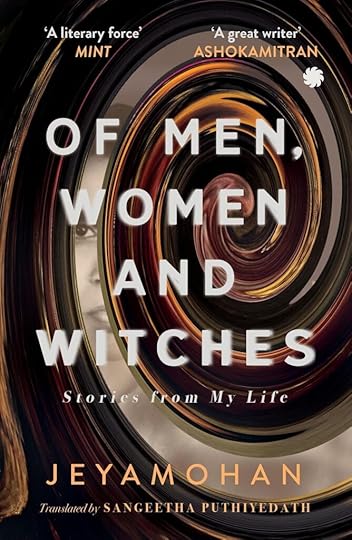ஆங்கிலத் தன்வரலாறு, இரண்டு எதிர்வினைகள்
Dear J,
Read the book “Of men women and witches”. Splendid translation. Sangeetha has captured the tone of reminiscence and comprehension that you have used in the articles perfectly well. I had read some of the articles from this series that are in your website in Tamil. This English translation invokes the same emotions as your articles in Tamil did.
They are a glimpse into the yesteryear world of the generations past. The text invokes vivid images of the land; a beautiful one filled with mysteries and mundane all rolled into one. One gets to understand the slow transition that happens as colonialism and monarchy give way to democracy. The women from the matriarchal society also happen to lose their land in the process.
The men in the book are few and they mostly come across as people who wear their anger or innocence as shield to hide their true selves. The women on the other hand are many and they leave an everlasting impression on one.
The choices that they make in their lives are varied, one chooses power and remains in control of her destiny as long as she is healthy, one chooses to repress her aspirations for the greater good of her children, one chooses the extreme step of ending her life, one chooses to be kept, some die horrible deaths as captives, humiliated, one chooses to find solace in books amidst her day-to-day drudgery and some choose to beg, defeated by fate.
These were probably the women who have shaped your idea of the feminine until you met the women you fell in love with. You are blessed with what a man could ask for in his life in women, a loving mother, a loving sister and a wife who fell in love with you and whom you love. This book comes across as an ode to all these women.
The men in the book refuse to acknowledge the fact that all they crave for is validation from their women. This results in a constant friction in their households. Neither end up being fulfilled, the undertone of failed marital relationships is prominent in the book.
On the other hand, are the lives of women who are coveted by men. The idea of yakshis, the spirit of women who die a wrongful death, seems to have been very prevalent at that time. Real or imagined, they did manage to invoke terror in the men of the region. They were the reigning deities of the forest. When the forests turned into estates which in itself is as act of covetousness, they turned into mere stones. Maybe they joined forces with Mother nature, together they seemed to be unleashing extreme events that reduce man-made materialistic symbols to dust. One can take it as the wrath of yakshis, trying to reclaim their forest, depending on whichever side of science one happens to be on.
At the end of the book, one is left pondering about men, women and witches and the land they lived on.
From,
Priya,
Bangalore.
The book talks about the most beautiful land of Tamil Nadu, which is Kanyakumari, aka Nanjilnadu. It starts with Jeyamohan’s childhood, his relationship with his father and mother, and about their relationship. Women coexisting with strangers is one thing, but Jeyamohan’s mother had to transition from a matriarchal system to a patriarchal one as well.
Of Men, Women and Witches ReviewJeyamohan's Blog
- Jeyamohan's profile
- 834 followers





